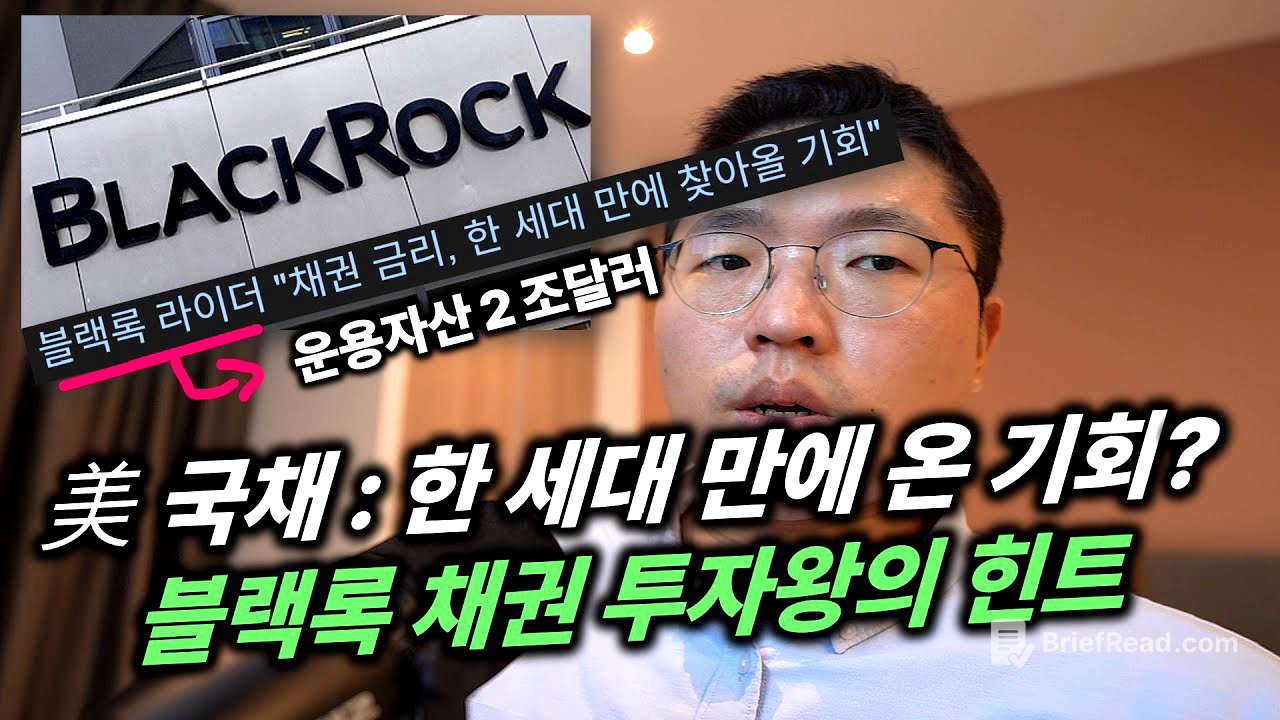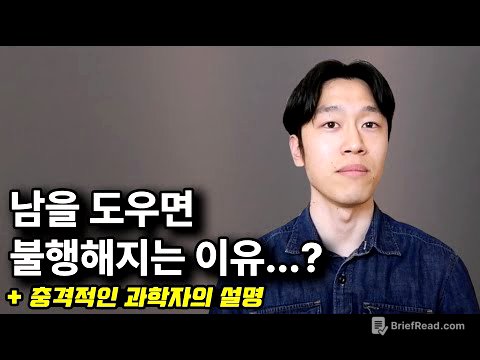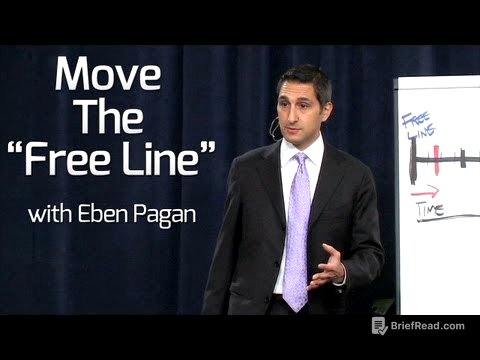TLDR;
This video discusses investment strategies in the bond market, particularly focusing on the potential opportunities presented by long-term U.S. Treasury bonds. It covers the current economic landscape, including inflation, housing prices, and the Federal Reserve's policies. The video suggests that long-term bonds are a "once-in-a-generation opportunity" due to factors like the potential for interest rate cuts, the impact of AI on lowering inflation, and shifts in government bond market dynamics.
- Bond yields are a once-in-a-generation opportunity.
- AI will lower inflation by improving production efficiency.
- Government bond market is shifting towards a domestic-centric market.
Introduction: Rick Ryder's Bond Market Insights [0:00]
Rick Ryder, BlackRock's Chief Investment Officer for Global Fixed Income, suggests that bond interest rates present a unique investment opportunity. He manages a substantial portfolio, making his insights noteworthy. The video aims to explain why Ryder believes bonds are a "once-in-a-generation opportunity," considering the fluctuations in interest rates and inflation following the COVID-19 pandemic.
Analyzing Current Inflation and Pricing Trends [0:35]
The current price levels are slightly higher than in 2017-2018, but the composition of prices is different. Service prices, particularly housing, are keeping the overall CPI high, while prices for goods and non-essential consumption are either negative, 0%, or hovering around 1%. Excluding housing prices, actual inflation is around 1% or even negative.
The Impact of Housing Prices on Inflation [3:58]
Housing prices, especially in states like Hawaii and California, have risen significantly since 2020, creating a substantial direct price bubble. This increase in housing costs drives up rents, impacting people's spending power. The proportion of rent in total income has increased from around 30% in 2019 to over 40%. High housing prices are a key factor preventing overall prices from decreasing.
Federal Reserve's Monetary Policy and MBS [6:59]
The Federal Reserve's actions, such as reducing the amount of Mortgage-Backed Securities (MBS) after 2022, affect banks' ability to provide loans. With the avenue for banks to liquidate their loans blocked, banks are forced to keep interest rates high and demand higher interest rates when providing mortgage loans. This aims to control housing prices by decreasing demand.
AI's Role in Lowering Inflation [9:05]
AI is expected to lower inflation by improving productivity and efficiency in manufacturing and healthcare. By using AI to automate processes and increase production efficiency, the impact of tariffs on raw material prices can be offset. This perspective supports the view that the Federal Reserve will eventually cut interest rates as inflation is managed.
The "Once-in-a-Generation" Bond Opportunity [10:25]
BlackRock's CIO suggests that bond yields are a "once-in-a-generation opportunity" because of the potential to secure a stable 5% interest rate for 20 years. In an era of low interest rates, such opportunities are rare. High-interest short-term bonds are a temporary advantage, while long-term bonds offer sustained high returns.
Government Perspective on Bond Issuance [12:35]
The U.S. government is increasingly reliant on short-term bond issuance, which creates pressure due to the continuous need to repay principal and interest. Long-term loans, on the other hand, only require principal repayment after 20 years. The government may aim to shift towards long-term bond issuance to reduce the interest burden.
MMFs and Short-Term Funds [13:50]
Money Market Funds (MMFs) are pouring short-term funds into the market, with about $6 trillion in U.S. Treasury bonds. These short-term funds are primarily managed by institutions like Goldman Sachs and BlackRock. As opportunities arise, these funds may gradually move to markets with better prospects.
SLR Regulations and Government Bonds [15:22]
The Federal Reserve is easing Supplementary Leverage Ratio (SLR) regulations for large banks, making government bonds more attractive. This relaxation allows banks to invest more in government bonds, as they are no longer as heavily penalized for holding them. With foreign investors unable to keep up with the increasing government debt, the market is shifting towards domestic investors.
Shift Towards a Domestic-Centric Bond Market [17:26]
Since 2010, the U.S. government bond market has been shifting towards a domestic-centric model, similar to Japan. As interest rates fall, the attractiveness of short-term bonds decreases, and large banks may increase purchases of long-term bonds. This shift could lead to a government bond market primarily supported by domestic investors.
US vs Korea Long-Term Interest Rates [18:51]
U.S. long-term bonds offer higher interest rates compared to countries like Korea, making them more attractive to investors. The gap between U.S. and Korean long-term interest rates is close to 1.5%. This increases the attractiveness of U.S. bonds, as they provide a stable 5% interest rate for 20 years.
Summary of Market Dynamics and Future Outlook [19:29]
U.S. long-term bonds offer higher interest rates than other countries, making them an attractive investment for the long term. Short-term bonds are only temporarily appealing. The government's easing of regulations allows big banks to buy government bonds. The current structure is leading to increased demand for short-term bonds due to concerns about rising prices and high interest rates.
Tariff Negotiations and Potential Interest Rate Cuts [20:54]
As the government concludes tariff negotiations and addresses concerns about rising prices, the Federal Reserve may resume interest rate cuts. If inflation is not canceled, the pressure for inflation will fall, which means that Yeonju can resume interest rate cuts. This would decrease the attractiveness of short-term bonds and increase demand for long-term bonds.
Policy and Essential Indicators [22:21]
Policy, interest rates, prices, and employment are important indicators to watch. The SLR deregulation, once fully implemented, will increase demand for national security. The outcome of tariff negotiations, particularly with Europe and Japan, will also be crucial. If these issues are resolved, interest rates could be lowered, bond yields could fall, and the dollar could weaken, potentially benefiting related sectors.









